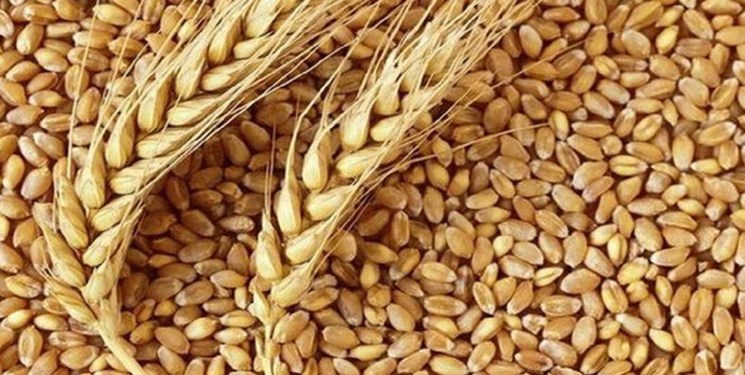Wheat Yellow Gold Nature
- health
- Wheat Yellow Gold Nature

Wheat Yellow Gold Nature
- مدیر سایت
- October 14, 2023
- 5:49 pm
- No Comments
Wheat is one of the main human foods and one of the most important grains around the world. This food plays a vital role in the supply of human food. Its origin can be traced back at least 11,000 years ago in the Fertile Crescent. Wheat provides about 20% of food and protein energy worldwide. This crop with 225 million hectares of land has the largest area of food crop cultivation in the world. This is an important source of carbohydrates globally. Carbohydrate starch is predominant in it, accounting for more than 90% of the total carbohydrates found in the seeds of this plant. Also, with about 13% protein, this plant is the main source of plant protein in human food. Proteins make up 7 to 22 percent of the dry weight of this plant. Although wheat proteins contain sufficient amounts of some essential amino acids, there is a small amount of lysine. Therefore, the proteins of this plant are of poor quality for human nutrition. When eaten whole, it provides a source of essential amino acids, minerals, vitamins, useful chemicals and dietary fibers. The fiber content of whole wheat is between 12 and 15 percent of its dry weight. Whole wheat is high in fiber, but the refined type is almost non-fiber.
The global demand for this plant is due to its viscoelastic properties and the unique adhesion of gluten proteins found in it, which facilitates the production of processed food products. The seeds of this plant range from chickpea color to reddish brown. Its texture is soft to stiff due to the endosperm components of the seeds.
100 grams of wheat provides 327 kcal of food energy and is a rich source of several essential nutrients such as protein, dietary fiber, manganese, phosphorus, niacin and other minerals.
The most important properties of wheat
Gastrointestinal system: wheat is rich in insoluble fiber. It helps to relieve problems such as flatulence, nausea, constipation and stomach dilation.
Prevention of type 2 diabetes: Wheat is rich in magnesium, which is essential for the function of more than 300 enzymes. These enzymes play a role in insulin secretion.
Reducing chronic inflammation: Betaine in this cereal prevents chronic inflammation. The anti-inflammatory properties of this food reduce rheumatic diseases and other diseases such as osteoporosis, heart disease and type 2 diabetes.
Prevention of gallstones: Because this grain is rich in insoluble fiber, it promotes fast and smooth food transfer from the intestines and reduces the secretion of bile acids. Excessive secretion of bile acids is the main cause of gallstone formation.
Improved metabolism: Fiber in wheat bran increases digestion in the body and improves overall metabolism. Hence, doctors recommend eating wholegrain bread and other fiber-rich foods.
Obesity control: This grain has the natural ability to control weight. This ability is seen more in women. In one study، women who consumed whole-grain products over a long period of time showed significantly greater weight loss than the others. In addition, whole grains contain complex carbohydrates, which make you feel fuller and provide energy for a longer period of time.
Liver detoxification: Germinated wheat is an excellent source of antioxidants and high fiber that helps to detoxify the liver. The liver is one of the largest internal organs in the body and its health contributes to regular and effective excretion of toxins from the body.
Reduce pregnancy problems: Whole grain products contain folic acid and B vitamins that help reduce pregnancy and lactation problems. Folic acid in this grain also prevents birth defects in neural tubes in infants.
Prevention of asthma in children: Diets based on this grain, due to high levels of magnesium and vitamin E, reduce the likelihood of children getting asthma.
Increased energy: Iron, folic acid, B and E vitamins found in this grain help produce serotonin and increase energy levels. This helps to reduce depression, boost mood, and increase overall health.
Reduced risk of stroke: Certain compounds found in wheat, such as fiber, vitamin K, and antioxidants, can reduce the risk of stroke.
Improving gut health: Studies show that wheat bran compounds may act as probiotics and feed some beneficial gut bacteria. As a result, it improves digestion and increases the absorption of nutrients in the body. Bran can reduce constipation in children. Most bran passes through the digestive system almost unchanged, causing an increase in stool volume.
Helps with skin health: Selenium, vitamin E and zinc in this grain help to nourish the skin, fight acne, as well as protect the skin from the sun’s rays. Also, high fiber maintains the digestive system at its best, which helps in regular excretion of toxins. This in turn helps to keep the skin smooth and youthful.
Helps hair health: Zinc found in wheat is effective in maintaining hair health as well as protecting against damage caused by environmental factors.
Helps with eye health: The vitamin E, niacin and zinc present in this grain reduce the risk of macular degeneration and cataracts. Lutein in unrefined grains also helps improve eye health.
Prevention of colon cancer: Colon cancer is the most common type of gastrointestinal cancer. Studies show that consuming whole wheat reduces the risk of colon cancer.
